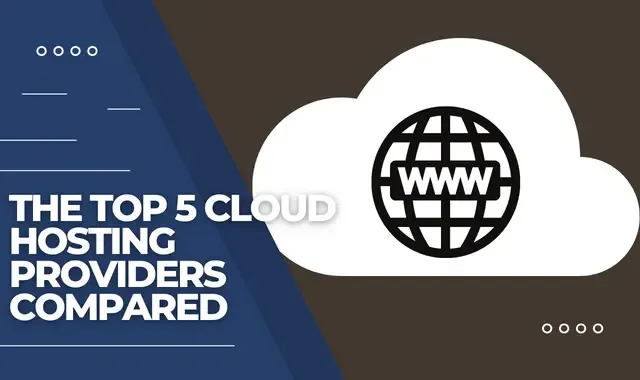Introduction to cloud hosting
Cloud hosting is a type of web hosting that uses a network of remote servers to host websites and applications. Instead of hosting a website on a single physical server, cloud hosting spreads the data and resources across multiple servers, which can be located in different parts of the world.
Benefits of cloud hosting
There are several benefits to using cloud hosting:
- Scalability: Cloud hosting allows you to scale your resources up or down as needed, making it easy to accommodate sudden spikes in traffic or changes in your website's resource needs.
- Reliability: Because cloud hosting uses multiple servers, your website is less likely to experience downtime due to server failures.
- Cost-effectiveness: Cloud hosting can be more cost-effective than traditional hosting, as you only pay for the resources you use. This can be especially useful for businesses that experience fluctuating traffic levels.
- Security: Cloud hosting providers often have robust security measures in place to protect your data and prevent cyber attacks.
Top 5 cloud hosting providers
There are many cloud hosting providers to choose from, but some of the top options include:
- Amazon Web Services (AWS)
- Microsoft Azure
- Google Cloud Platform
- DigitalOcean
- Vultr (Get $100 to test this platform)
Comparison of features and pricing
Here is a comparison of the features and pricing of some popular cloud hosting plans:
| Provider | Storage Space | Bandwidth | Price |
|---|---|---|---|
| AWS | 30 GB | 1 TB | $0.023/hour |
| Azure | 100 GB | 1 TB | $0.026/hour |
| Google Cloud | 10 GB | 1 TB | $0.023/hour |
| DigitalOcean | 50 GB | 1 TB | $0.015/hour |
| Vultr | 25 GB | 1 TB | $0.01/hour |
*Note: Prices and features are subject to change and may vary depending on the hosting provider and the specific cloud hosting plan chosen.
Pros and cons of each cloud hosting provider
AWS:
Pros: AWS is a highly reliable and scalable cloud hosting provider with a wide range of features and services. It is also backed by the resources of Amazon, a trusted and well-established company.
Cons: AWS can be complex to use and may require a steep learning curve for those new to cloud hosting. It can also be more expensive than some other cloud hosting providers.
Azure:
Pros: Azure is known for its reliable performance and excellent customer support. It also offers a wide range of features and services, including artificial intelligence and machine learning capabilities.
Cons: Azure can be more expensive than some other cloud hosting providers, and it may require a learning curve for those new to the platform.
Google Cloud:
Pros: Google Cloud is a highly reliable and scalable cloud hosting provider with a wide range of features and services. It is also backed by the resources of Google, a trusted and well-established company.
Cons: Google Cloud can be more expensive than some other cloud hosting providers, and it may require a learning curve for those new to the platform.
DigitalOcean:
Pros: DigitalOcean is known for its simple and straightforward cloud hosting plans, which are easy to set up and manage. It is also a cost-effective option compared to some other cloud hosting providers.
Cons: DigitalOcean may not offer as many advanced features as some other cloud hosting providers, and its customer support may not be as comprehensive.
Vultr:
Pros: Vultr is a highly scalable cloud hosting provider with a wide range of features and services. It is also a cost-effective option compared to some other cloud hosting providers.
Cons: Vultr may not be as well-known as some other cloud hosting providers, and its customer support may not be as comprehensive.
How to decide on the best cloud hosting provider for your needs
When choosing a cloud hosting provider, consider the following factors:
- Your budget: Compare the pricing of different cloud hosting providers to find the best fit for your budget.
- Your website's needs: Consider the specific needs of your website, such as storage space, bandwidth, and the types of features and services you require. Choose a cloud hosting provider that offers a plan that meets these needs.
- Reliability: Choose a provider with a good track record of uptime and reliability.
- Security: Make sure the provider has robust security measures in place to protect your data.
- Scalability: Look for a provider that allows you to easily scale your resources up or down as needed.
- Customer support: Choose a provider with a knowledgeable and responsive customer support team.
Conclusion and final thoughts
Cloud hosting is a powerful and flexible hosting option that can benefit businesses of all sizes. By considering the factors above, you can choose a cloud hosting provider that meets your needs and helps your website and applications run smoothly.

